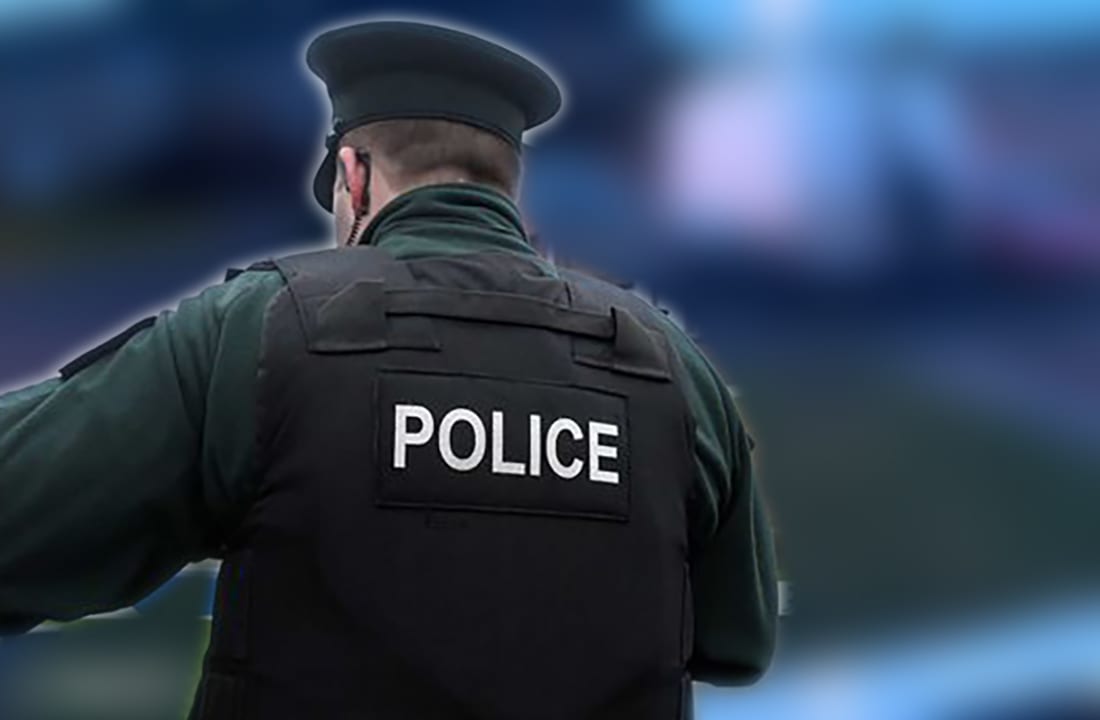
The author of Northern Ireland’s Human Trafficking and Exploitation Act has challenged the PSNI to explain why in the course of checking premises for potentially trafficked victims, they openly stated part of this exercise involved screening brothels.
Former MLA, Lord Maurice Morrow, successfully brought the Act into law in 2015, creating a groundbreaking change which outlawed the purchase of sexual services and exploitation by others controlling such activities.
Last month the PNSI released a statement ahead of Anti-Slavery Week setting out actions with the partner organisations to tackle the very real issue of modern slavery and human trafficking.
However in the course of this it was noted among premises being “screened” for potential victims are brothels, indicating PSNI know these exist yet the running and use of such facilities is illegal.
Detective Chief Superintendent Andy Hill said: “Detectives from the Modern Slavery and Human Trafficking Unit were joined by colleagues from right across the country. The collective aim was to raise awareness, and to support and safeguard innocent victims.
“Our team is 100% committed to tackling the horror of modern slavery and human trafficking, and we will continue to work day-in day-out to do that.”
He described Anti-Slavery Week as “a welcome opportunity for everyone – including police forces, agencies, charities and individuals – to put this often hidden crime in the spotlight” and mark this PSNI chose to highlight one concerted action.
This consisted of PSNI teaming with partner organisations, such as Border Force and Belfast Harbour Police, while An Garda Síochána carried out similar activity in the Republic of Ireland.
“The joined-up and ultimate aim is to safeguard and protect vulnerable people,” said DCS Hill.
In the course of activity PSNI carried out visits with estate agencies and hotels and kept an overt presence at ports, airports and transport hubs to raise awareness and safeguard any potential victims.
However the PSNI statement also contended safeguarding and screening exercises were conducted with ‘at risk’ locations, including car washes, massage parlours, nail bars and brothels.
The PSNI were asked to explain how they could know brothels exist (which they clearly do given this screening) why are they not closing them down?
The purchase of sexual services was outlawed by the Human Trafficking & Exploitation Act (NI) 2015 and brothels by definition are visited by sex-buyers and controlled by others profiting from payment of sexual services.
In response DCI Hill did not answer the question instead stating: “The PSNI is fully committed to tackling the very real issue of modern slavery and human trafficking. This is a horrific crime, and one in which criminals line their pockets by exploiting the vulnerability of others.
“Locations that are ‘at risk’ of being used in modern slavery and/or human trafficking were identified and targeted in recent visits. Cash-based businesses, such as car washes and nail bars, are at risk locations for labour exploitation.
“Properties that are at risk of being used as brothels include short-term, privately rented flats or houses, budget hotels or holiday properties.
“The aim of the screening process was to highlight potential signs and indicators of slavery and/or human trafficking. It involved highly trained officers conversing with those staff involved in the letting of premises in order to raise awareness of the signs. There were no concerns found during this operation.”
It was pointed out this did not answer the question posed, however there was no response.
Author of the Human Trafficking and Exploitation (NI) Act Lord Morrow said: “While I very much welcome the screening undertaken, I have significant concerns that PSNI clearly know brothels are operating, as they would not be screening the premises in the first place.
“Among multiple protections the Act outlawed the purchase of sexual services in Northern Ireland, yet brothels are facilitating such activity. Furthermore, those controlling brothels are exploiting others and mercilessly profiteering in the process and that too is illegal.
“The PSNI must explain how they know of such premises yet are not closing them down and rescuing those entrapped physically, psychologically, financially or any other reason. There are packages in place to assist with this on top of interventions if a victim has been trafficked.
“It is the role of the PSNI to ensure the legislation is adhered to entirely, not selected sections. The PSNI has openly stated brothels are purportedly being screened so are they unaware of the full scope of the legislation?
“Given what has occurred I trust all relevant follow-up operations are taking place and prosecutions can be expected, because with the limited number of cases coming before the court to date it certainly is not convincing that the legislation to tackle the scourge of human trafficking is being applied as it should. This points to such activity being legal by default. Victims demand better.
“It appears those who are tasked with enforcing legislation which has been law since 2015, are still hesitant to do so. When the legislation first came on the statute books a period of time was given after which the new law would be rigorously implemented. Sadly it appears this just is not happening. Legislators are not enforcers. That is for others including the Public Prosecution Service.”



